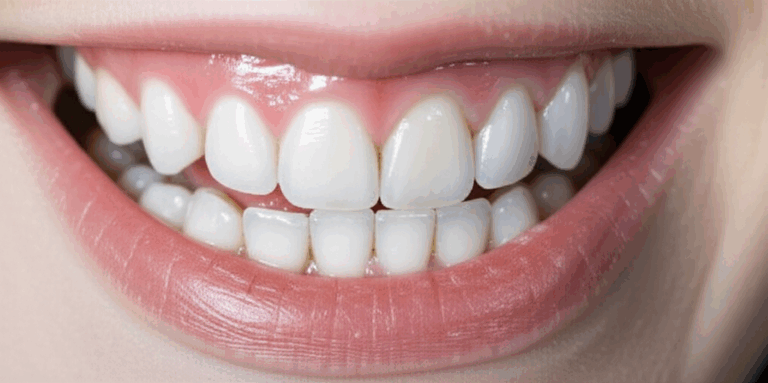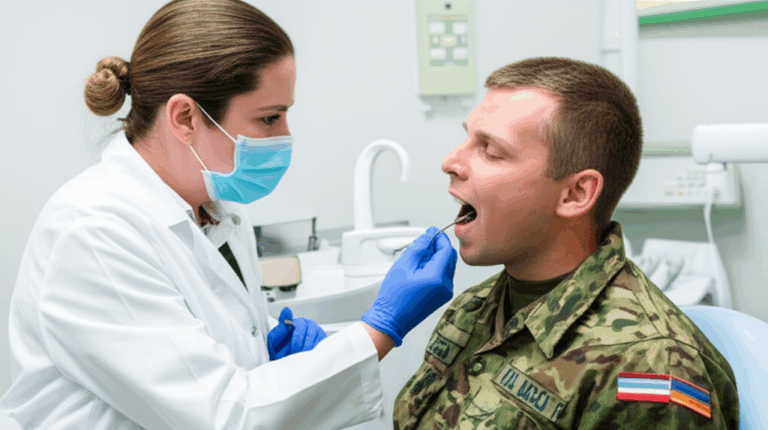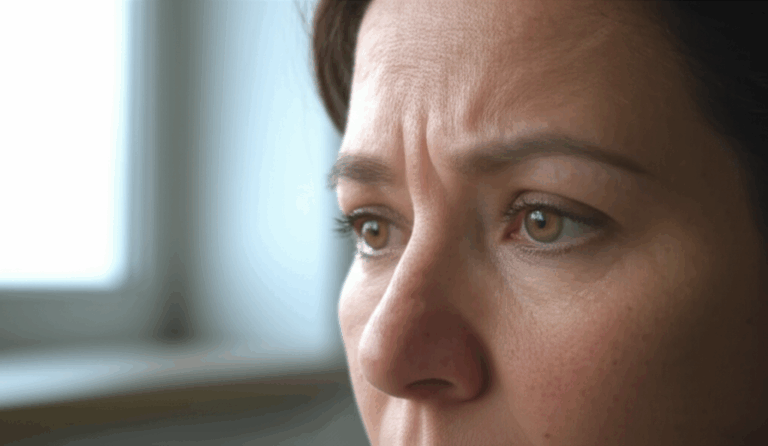
Can Urgent Care Treat Dental Problems? My First-Hand Guide to Getting the Right Care Fast
Introduction: Facing a Dental Crisis – What I Wanted to Know
I’ll never forget the day my tooth started hurting like crazy out of nowhere. It was a Saturday night, of course—why do these things never happen during regular office hours? I was in a mix of pain and panic, so I did what most of us would: I went online and searched, “can urgent care treat dental problems?”
If you’re reading this, I bet you’re in a similar boat—dealing with sudden tooth pain, a lost filling, or some weird swelling in your mouth, and you can’t get ahold of your dentist. Let me walk you through what I learned (sometimes the hard way) about what urgent care centers really can—and cannot—do for dental emergencies. You’ll get my personal stories, plus good info that will help you make a fast, good decision for your mouth.
Table of Contents
- What Can Urgent Care Do for Dental Problems?
- Where Urgent Care Can’t Help – Their Dental Limitations
- Urgent Care vs. Dentist vs. Emergency Room: My Guide: Where to Go
- What Happened When I Went to Urgent Care for My Toothache
- After Urgent Care – My Next Steps and What I Learned
- Conclusion: Urgent Care Is a Bridge, Not a Final Stop
What Can Urgent Care Do for Dental Problems?
Let’s get straight to it: urgent care is there for quick fixes and to make you feel better right away—not for solving the real reason behind most dental issues. Still, there are times where urgent care centers were a total lifesaver for me (or at least bought me some time until I could see my actual dentist).
Help with Sudden Pain
When a toothache hits, it doesn’t care that it’s after 5 PM. I once spent hours walking around my kitchen, holding my jaw, just needing help. At urgent care, the provider listened, looked in my mouth, and said the pain was probably from some deep swelling or maybe an infection starting inside my tooth.
Here’s how they helped:
- Gave me prescriptions for painkillers that really helped, not just the over-the-counter stuff that wasn’t doing anything.
- Gave me tips on using cold packs and how to not make the pain worse.
No, they didn’t fix the tooth, but they stopped the cycle of pain and helped me get by until I could get a dentist appointment.
Dental Infections and Abscesses
Ever wake up with one cheek swollen up like you’re storing nuts for the winter? Yeah, that happened to me—and a dental abscess is not something to ignore. When the swelling started to spread and I felt a little feverish, urgent care was my first stop.
What urgent care did for my infection:
- They looked at the swelling and figured it was likely an abscess (not just a canker sore or irritated gums).
- Prescribed antibiotics to get the infection under control and stop it from spreading—which is super important to prevent bigger problems.
- Told me when to go to the emergency room if the swelling moved toward my throat, made it hard to swallow, or if I had a fever that wouldn’t go down.
Did they drain the abscess? Not for me—most urgent cares won’t handle deep dental abscesses, but they might be able to drain a simple infection near the surface if it’s safe. The main point: antibiotics bought me time, but only a dentist could truly fix the abscess.
If you want to understand more about the risks of not treating mouth infections, check out this resource on dental diseases. It really showed me why you shouldn’t wait when you think you have an infection.
Swelling and Soreness
I’ve had times where my gums swelled up around a wisdom tooth, making it hard to chew. That’s usually pericoronitis (a fancy word for sore gums around a tooth that’s only part-way out). It’s very uncomfortable, and sometimes you get pus or a bad taste in your mouth. Urgent care offered:
- Anti-inflammatory medicine to help with the soreness.
- Antibiotics if they thought there was an infection.
- Advice: Don’t pick at it—just be gentle when cleaning your mouth and see a dentist soon.
Quick Fixes for Small Problems
Ever bite into something and feel that awful crunch—a chipped tooth, or a filling that suddenly popped out? That one happened to me during a late-night snack (of course).
Here’s what urgent care could do:
- Check for any exposed nerves or sharp edges. If they saw anything serious (like the inside of the tooth showing), they told me to get to a dentist right away. Otherwise, they gave me advice to keep it clean, suggested using dental wax to protect my tongue, and gave me a prescription for pain or to prevent infection.
- Told me to stay away from hard foods and keep the area as clean as possible until I could get it fixed for good.
Just a heads up: urgent care almost never has the dental glues or tools to actually put your crown or filling back. It’s all about lowering your risk and pain for a little while.
If you want to learn about how these fixes are made, the process often involves places like a crown and bridge lab, but that’s for your dentist to handle.
Help with Small Mouth Injuries
Kids playing sports and adults tripping over nothing both find ways to hurt their lips, gums, or even break teeth. I once split my lip open playing basketball. At urgent care:
- They cleaned the cut really well (way better than I could at home) and checked if I needed stitches.
- Checked to make sure nothing more serious was wrong, like a broken jaw (though for big injuries, I would’ve gone to the ER).
- Gave me instructions on how to care for the cut and prescribed antibiotics just in case.
Where urgent care is great: stopping bleeding, lowering the chance of infection, and telling you it’s going to be okay if your tooth isn’t loose or badly cracked.
Where Urgent Care Can’t Help – Their Dental Limitations
Here’s something I had to learn: an urgent care center is not a dentist’s office. No matter how nice or smart they are, the doctor at urgent care doesn’t have the same training—or the tools—your dentist does.
After a few late-night trips and asking a lot of questions, I learned they can’t do these things:
- Root Canals: If you need the infected middle (the pulp) of your tooth taken out, urgent care can’t do it. Only a dentist or a root canal specialist can.
- Pulling Teeth (Except Maybe True Emergencies): Getting a tooth pulled, especially wisdom teeth or broken ones, is a no-go.
- Replacing Fillings or Crowns: They can give you temporary advice, but they can’t do permanent repairs. They don’t have the drills, glues, or custom crowns there.
- Things That Make Your Teeth Look Better: You won’t get veneers, whitening, or anything like that at urgent care.
- Fixes for Braces: Wire snapped on your braces? Only an orthodontist can fix that. Urgent care might just give you some wax and a phone number.
- Regular Cleanings and Checkups: No teeth cleaning, no polishing—those are for dental appointments, not emergencies.
- Big Dental Surgeries: Broken jaws, bone grafts, or getting dental implants—go to the hospital or a dental surgeon for those.
Why? Urgent care centers don’t have the special X-rays for teeth, the right tools, or the legal permission to do dental work—plus, their training is in general medicine, not just teeth.
I was a little annoyed when I first found this out, I was hoping for more. But now I get it. They’re there to keep you safe and stable, not to solve every problem.
Urgent Care vs. Dentist vs. Emergency Room: My Guide: Where to Go
When my dental emergencies happened, I was often really confused. Should I call my dentist, run to urgent care, or go to the ER? Here’s the personal checklist I made from a lot of nervous Googling and real-life experiences with all three.
When I Choose Urgent Care
- The pain is awful, but my dentist is closed or can’t see me for a few days.
- There’s swelling, redness, or I think there’s an infection, and I need antibiotics quickly.
- My mouth got hit, and I want it checked out, but there’s no big injury or bleeding that won’t stop.
- I need a quick refill on a prescription for pain or infection.
Urgent care is the “bridge”—they get me through the worst of it and point me to the right dentist.
When I Make the Dentist My First Stop
- It’s during business hours and I can get in today or tomorrow.
- I need something more than just pain relief: a filling, a tooth pulled, a crown, or a root canal.
- I want a real diagnosis of the problem, not just something to help the symptoms.
- For all regular check-ups and cleanings too—don’t waste urgent care’s time (or your money) on those.
When the Emergency Room Is a Must
- The swelling is so bad it’s starting to make it hard to breathe, or I can barely swallow.
- There’s a lot of bleeding from my mouth that I can’t stop by putting pressure on it.
- I’ve had a big injury—a car accident, sports injury, or even a knocked-out tooth (especially in kids; you have to be fast to put it back in).
- I have signs the infection is spreading in your body—a high fever, chills, or feeling confused—which could mean the infection is getting serious.
If you’re not sure if your mouth pain needs urgent care or the ER, be safe and don’t take a chance. I waited once, and a friend who is a nurse told me, “If you can’t breathe or swallow, don’t drive—call 911.”
If you’re interested in reading more about how your mouth health affects the rest of your body, this guide on teeth health really opened my eyes to the bigger picture beyond just one sore tooth.
What Happened When I Went to Urgent Care for My Toothache
Let me give you the play-by-play from my own urgent care visit so you know what to expect.
The Front Desk
The staff checked me in, took my ID, and asked me about my symptoms: how long my tooth hurt, if I had swelling or a fever, and if I’d taken any medicine. I was honest about my pain level. Don’t try to act tough—let them know how bad it feels.
Getting Checked Out
A nurse took my temperature and blood pressure and asked about my health history. The provider then did a quick look in my mouth. They didn’t have dental X-rays, but they felt my jaw, checked for swelling, and looked for any obvious problems or cuts.
What They Told Me (and What They Couldn’t)
They explained: “We can’t tell you for sure what’s happening under the gum, but this swelling points to an infection. You need to be seen by a dentist soon.” No confusing dental words, just straight talk.
What They Did for Me
I left urgent care with:
- A prescription for antibiotics and pain medicine.
- Instructions to use a cold pack and not chew on that side.
- A list of warning signs that meant I should go to the ER right away (like trouble breathing or swallowing).
- A note for my dentist, explaining what they saw.
The Referral
They really stressed, “This is only a temporary fix.” That stuck with me. The urgent care team wanted to help, but they made it clear: only a dentist can provide a real fix.
Cost and Insurance
My visit was covered as a regular medical visit—not dental. My dental insurance didn’t help me here; check with your insurance company beforehand if you’re worried about the cost.
After Urgent Care – My Next Steps and What I Learned
When I walked out with a prescription and a referral, I was tempted to feel like the problem was solved. But, honestly, urgent care only put a pause on the problem; it didn’t fix it.
The Real Work: Seeing My Dentist
Antibiotics and painkillers helped calm things down, but my dentist had to x-ray the tooth, clean out the infection, and fill the cavity. If I’d waited too long, that infection could have spread—getting help quickly is more important than I knew.
Managing My Symptoms
Taking all of my antibiotics was super important—even when the pain got better, stopping early could let the infection come back even worse.
Taking Care of My Teeth
This whole thing made me really serious about brushing, flossing, and not skipping my regular check-ups. I realized how much a few simple habits could’ve saved me a painful weekend and a surprise urgent care bill.
For more on building good daily habits (and why preventing problems is better than panicked trips to the doctor), you might like this section about dental care.
Conclusion: Urgent Care Is a Bridge, Not a Final Stop
As someone who’s been through the stress of a sudden tooth problem, I can say for sure: urgent care can be a real lifesaver when pain, swelling, or infection show up after hours. They get you stable, help you out, and keep things from getting worse.
But, and this is a big “but,” they don’t fix the problem for good. For fillings, crowns, abscesses, root canals, or cleanings, urgent care is just a pit stop. Where you really need to go? The dentist’s chair.
Don’t wait after that urgent care visit. Book your dentist appointment, follow their instructions, and don’t ignore warning signs. Take care of small dental problems—before they become big, painful, and expensive emergencies.
If you’re stuck in a dental emergency right now, I hope this guide helps you find some calm in the chaos and make the right choice for your health. And remember: your teeth deserve just as much attention as the rest of your body!
If you’re curious about how new technology is making dental treatments better, check out what’s new from a digital dental lab or see how materials like zirconia from a zirconia lab are making crowns and bridges stronger. While that’s something your dentist will handle, it’s amazing what’s happening behind the scenes.
You’re not alone. I’ve been there—and with a little information and the right next step, you’ll get through this and back to healthy, pain-free smiles.








